European Letters, by T.W. Patton to
The Asheville Citizen:
Description of the Tour of
the North Carolina Teachers, During the Summer of 1889
ON THE CONTINENT. [pages 33-44] |
|
*Note: Copy has been re-formatted. Original two column format has been
abandoned and special fonts have been standardized.
|
| Pages # |
I.D.# |
Description |
Thumbnail |
| |
eur033 |
ON THE CONTINENT.
BRUSSELS,
BELGIUM, August
2,1889.
dear citizen:—On
last evening your
correspondent left tiresome London,
where a week of continual
sightseeing had quite exhausted his powers, mental and physical, and
taking train for Harwich, there
boarded a small steamer which
landed us at Antwerp at 10 o'clock this morning.
There are doubtless many
things in Europe which are better done than in
America, notably the science of fleecing travelers by means of
fees and extra charges, which is
certainly worked up to a degree of perfection that entitles it to
be classed among the fine arts. It is
rather annoying when you sit down to a
table d'hote dinner, which
professes to be served for
five shillings, to find yourself
charged a sixpence extra for
attendance, nine-pence for a
cup of coffee and threepence for ice, which two last items you
may have unwittingly asked for.
While we feel obliged to acknowledge
the superior skill of our hosts in the department referred to above, we
must say that in
everything that composes true
comfort in traveling, America can teach them more than they have
learned in all the centuries of
their national existence. They really do not know the meaning of
the word "comfort." Their railroad
carriages one soon gets
accustomed to, and they are
not so really objectionable,
when occupied by a party of friends, but
when crowded with people
unacquainted with each other and all inclined to consider
anyone who ventures to begin a conversation as a burglar or
garroter in disguise, it is by no
means agreeable.
Then, too, the want of ice water is terribly
felt by those who have always been
accustomed to having it in
the greatest abundance. In the
railroad carriages there is no provision whatever for supplying
water, iced or otherwise, and we can
conceive of nothing more distressing than to be obliged to travel
all night in one of them.
Nor are the discomforts by any means
confined to the railroads, but the steamboat
accommodations are quite as unsatisfactory. We have given you some idea
of the discomforts
attending a trans-Atlantic voyage by a steamer of the
State line, and last evening when we
found the boat—which was to carry a
tremendous crowd across the North
Sea —both small and illy [sic
?] provided with what we are
accustomed to consider the necessities
of traveler's life, (for instance, not
a single chair nor sofa provided on
deck) we could not resist the
comparison with our American Fall River line, or Chesapeake Bay
boats or many others where every
convenience and delight is provided
in abundance.
Before leaving mention of London we
must not fail to chronicle
that which most charmed us there,
towit, a sermon by Canon
Farrar. St. Margaret's church
was packed full to overflowing last Sunday,
but it was our good luck to secure a
place where every word was audible,
and the expressive face and
gesture of the earnest speaker visible. It was strange
to hear the comments of all of our
party as the service ended.
With universal consent the
sermon was declared excellent, and "exactly like that we heard last
Sunday at St. Giles', in
Edinburgh." Yes, we never
remember on two successive
Sundays, in different places and by
ministers of different creeds, to
have heard discourses so
remarkably similar in tone, idea and in manner of delivery.
All that we had heard and read of
Canon Farrar was fully realized, and without
attempting an epitome of his sermon,
we will only say the same spirit of universal love and urging to
good works in the most practical and
common sense man-
... |
 |
| |
eur034 |
...
-ner pervaded it, as do all of his writings that we have read.
Now for the Continent! Arriving in
Antwerp we spend a few hours in visiting
several places of interest. The home and
the
tomb of the great painter Rubens,
and
several of his most noted pictures. His "Crucifixion" we thought most
painfully realistic, and yet the fascination
was
such as kept our eyes fixed upon it.
The
difference in expression of the two thieves was especially strong, but
we '
must confess none of his paintings leave
with us any sense of enjoyment. All are renditions of such terrible
ideas, and in a
manner to bring them to your very face. Then today we saw one of the
martyrdom
of a saint, whose tongue had been
cut out and was being fed
to a dog, while the poor victim
writhed in anguish,
inexpressible by anyone save Rubens. Indeed it was enough to keep one
awake for a week with the memory.
The specimens of wood carvings all of
the churches, in beauty far surpassed anything
we ever dreamed possible, and
again and again we longed
for you to see it, for in no other
way can you enjoy it as we
did. It was not only a surprise to us that this art could be
brought to such perfection, but all
the subjects were selected so
as to give pleasure and rest to
the eye and brain.
In
one of the galleries we saw numerous
amateur artists copying the paintings,
and among them one man who had
no arms, having been born so maimed,
and yet with his toes he was
making a very creditable copy
of one of the best pictures.
It was very curious to see with what ease he could handle, or rather
toe, his brushes, and with
what delicacy he could apply
his colors.
Leaving Antwerp at 5 p. m., an
hour's ride over a beautiful
agricultural country brought us to Brussels. What most pleased us was to
see the wind mills in all directions performing their part, by
pumping the water for irrigating the
lands. This was a picture we
noticed as soon as we could
see the land this
morning,
and struck us very oddly, as also the
fact that we could look across the
hamlets and see the sails of vessels going in
all directions, looking very much as
though sailing on dry land.
Brussels, we pronounce
after a day's
inspection, one of the most beautiful cities we have ever seen, and in
its cleanliness a
wonderful relief after London. The hotel
and restaurants are good, and would not
be at all expensive were
it not for the abominable extras, one
of which is lights; and as
they charge us two francs—
forty cents—each for candles, we only use
one, and this accounts for the
incoherent manner in which
this is written, because the room is so dark as to render us
uncertain whether we are talking in English or still jabbering away at
our new idiomed [sic] French, as we have been doing all day, very much
to the amusement of our party.
However they may be amused, it matters not to us, and we find a
few words, even of bad French, a great help, relieving vis of the
necessity of a guide or interpreter. We find little
trouble in making ourselves
understood ; but the difficulty is to catch the reply,
showing conclusively how much better
our French is than that of the residents here. Perhaps we may be
able to come down to the level of our auditors soon.
We hope so.
One of the handsomest
buildings we ever saw is the temple
of Justice, finished some
fifteen years ago, and in some respects surpassing our national
capitol; especially are its
perfections shown in the interior arrangements and finish of the
several courts, which seem to
correspond with, as to arrangements for general
transaction of legal business and in
manner of appeals from the
lower to the higher tribunals.
A
day has been very pleasantly, and we
hope profitably, spent, in viewing many
places of interest and
beauty; and long will the enjoyable
impression made upon us
endure, and refresh us with its memory.
To-morrow morning early we
start for Cologne, where we hope to arrive in time to attend
service at 11 in its celebrated cathedral. As our only stamp is one for
this nation, which will not answer after we pass its borders at Aix-La-Chapelle,
we must close, hoping you can read it, which we greatly doubt.
cologne, germany,
Sunday, August 4, 1889.
dear citizen
:—We have given you our opinion
of the sermons which we were so ...
|
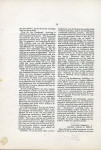 |
| |
eur035 |
fortunate as to hear on
the past two Sundays, first from Dr. Lees at Edinburgh,
and next from the renowned Canon Farrar in London. To-day we
have enjoyed another, widely
different, to be sure, but
preaching to us the glory of
God as manifest in the marvelous works
of his creatures.
We
mean that to-day we have looked
upon and entered the grandest specimen
of
Gothic building that the world contains.
Differing from every thing we have
seen elsewhere, and far surpassing all others in sublimity of beauty,
the Cathedral of Cologne will rest in our mind and
heart as the most refreshing, restful spot
we
ever beheld, or dreamed of.
The
perfection of its arches and of the general proportion is such as to
deceive one as to
its immense size and to bring every point apparently near to the beholder, while the exquisitely fluted pillars, each adorned with
statuary, (not in the wearisome style
of Westminster, but one or two figures to each column), are
lighted to their very tops by the
brilliant and yet soft light
which streams through the most
lovely of glass.
A
very faint idea of the exterior maybe
had from a photograph, which we will
send you, but none could we find to adequately
represent the magical effects of
the
nave and transept and chancel. And
yet, notwithstanding the immensity, the acoustic properties are such
that at vespers
every tone could be heard even in the
most distant corners, and the soft roll of
the organ seemed to fill each spot and to
ascend to Heaven even as the sweet incense which went up before the
altar, until it,
too, caught the bright glow of the
sun, itself made more glorious by the
medium through which it entered.
Yes, we repeat, it was a sermon indeed to reflect upon the Creator who
made the
man's brain by which this cathedral was
designed more than 600 years ago, because
be it remembered that the work
was
begun early in the thirteenth century
and although not completed until 1876,
it
is manifest that the whole ground plan
must not only have been conceived, but specified in most minute detail
by the original architect; otherwise it could not
possibly have attained its present perfection.
Of
course we were pained by hearing of relics, and pieces of the original
cross, and all such
bosh as that, with which, strange to
say, the Catholic church, amid its multitude of good works, still
allows its silly votaries to be
deluded, and others to use as a means of fleecing traveling innocents. But not
belonging to the most advanced of
this class, we declined to invest
in the relic business, and successfully kept our thoughts upon
those things with which this same
church has done so much to proclaim the glory of God, and
to educate mankind to a conception,
even afar off, of His infinite beauty and
mercy.
We left Brussels at a very
early hour this morning and had scarcely finished
adding up our French hotel bill, gazing in petrified horror at
its tout ensemble of francs
and centimes, when a gruff official entered our carriage and said
something which we can neither
pronounce nor write, but
which sounded somewhat like "Ouchenwrachenchroutzenginz,"
which a kind fellow traveler interpreted to mean a demand for our
keys and a warning that no more French would be allowed under penalty of
decapitation for high treason. We
readily surrendered our keys and assisted the officer to smell
all of our soiled socks, which he seemed to
appreciate highly. But how can we
surrender our lovely French, over which we have labored so
earnestly, and of which we were justly so proud? Oh, it is too
bad. We could shed tears over our
loss, especially as it is a most grievous one to this whole
nation. If uninterrupted, we would
have had them educated up very soon to an idiom entirely new and
of most charming patois. But such is
life—
"I never loved a fair
gazelle," etc., etc.
The burly officer seemed so much impressed
with the perfumery we tendered him
that he passed by the other members of our party with an
expressive grunt of approval, and
thus were the custom house
duties protected from an infringement. What a farce the whole
business is! Why not have free trade
for all, and save this
disgusting nonsense ?
In our letter from
Brussels we forgot to mention that
which most delighted us, its
wonderful store of flowers. Since we landed at Antwerp our eyes
have been gladdened with their rich and glorious
|
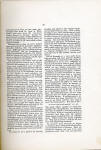 |
| |
eur036 |
hues at every step, but more especially so
in Brussels and at this
city. Here their cultivation has
been most careful, and no more
agreeable, nor to our mind more
profitable, way can be
suggested to spend a Sunday afternoon than to wander, as
we have today, over the smooth walks
and velvety grass of the Jardin Botan-nique
(we don't know the German for it)
feasting upon its beauties and
meeting crowds of happy,
contented labor ing people, in this way taking their holiday,
drinking beer and listening to the
sweetest of music. It was
very delightful and we
enjoyed it, you may be sure.
The country through which we passed
this morning was all excellently cultivated
and thus agreeable to look upon, but
a good part of it,
especially that from Liege to Aix-la-Chapelle, was far more
picturesque than we expected to find
it. From the lowland flats it
changed to undulating, then
to hilly, and finally the
hills became steep and rugged, reminding
us somewhat of the Trossachs of
Scotland, saving their lakes,
which lack was in part amended
by numerous clear, bright
rivers and creeds, which we spun over as we dashed out of the
numerous tunnels.
Cologne has not very much to cause
one
to prolong his visit after an inspection of the cathedral. Most of the
streets are narrow
and antiquated, but a part of the
most ancient have been torn away since the war "with France and replaced
by boulevard^ such as would
do credit to any city. We
tried to find the statues of
the three kings, but as our French tongue was tied, and these people can
talk English no better than
we can German, we meet with but slight success. We did, however,
gather on to the legend that the
three kings were the magi, who,
after their adoration of the infant
Jesus, came hither, and here
they lived, died and were buried, their tomb still being recognized.
Possibly this may explain why this apparently insignificant city was
chosen as the site of the
grand cathedral, which is a
question that has puzzled us
and will continue to do so, unless the above is the true solution of it.
P.
S.—Just as we are stepping into bed,
we find that we are
expected to sleep under a feather
bed. It does seem very nice
and fluffy, and would be greatly enjoyed
if the mercury were at zero, but
with it at 80° in the shade we are inclined
to
postpone our experience of this funny
Dutch hospitality until
our next visit. Perhaps if the Swiss at Mount Blanc
adopt the same habit we .may then be
able to'tell you what we think
of it.
maYnce, [MAINZ]
Germany, August 6.
dear cittzen
:—A sail up the Rhine,
which we fully enjoyed on yesterday, is a
thing long to be remembered. In some
respects the features of
the country resemble those of our own, as seen upon
ascending the French Broad, from Morristown to Transylvania. First
a broad, comparatively level country, but here grim with frowning fortifications,
which disfigure with thoughts
of blood and violence the
otherwise peaceful and lovely
scene.
This character prevailed from Cologne to Bonn, probably a distance of
fifty miles, but
there the county suddenly changed
and a precipitous mountain juts out into the current crowned with
a massive ruinous castle called "Dracenfels"
(Dragons Crag we suppose), which fills
us with wonder how the ancient
builders could have raised
the tremendous amount of stone to its dizzy height, their
quarry said to have been at Cologne; but in respect to beauty, it is
far eclipsed by the numerous towers and castles which greet us after passing Coblentz.
At
every turn the tortuous river
has become narrow and in places so
swift as to make our
steamer puff painfully.
Our neck is sore with craning from side
to side, and eyes.
strained with looking upward, at those marvelous works6f the
Robber Kings, erected hundreds of
years ago, and still standing as durable as the mighty rocks
eternal upon which they are perched.
At one place we have
pointed out the remains of the
buttresses of Caesar's famous
bridge, over which many school boys have labored .and accomplished the
crossing with more pain and tears than
it cost the great General himself.
After passing a defile
where the river has
broken through the mountains (very
similar to that from Asheville to Paint Rock), extending from
Coblentz, at the mouth of the river
Moselle, to Bingen, a ...
|
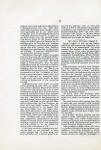 |
| |
eur037 |
... distance of probably fifty miles, we reach
again a broad, open, comparatively level country, similar again
to the upper French
Broad.
Naturally the most
interesting is the intermediate
section, and never have we
experienced anything so charming, entirely differing from any of our
American rivers in the marks of a dynasty long
since passed away. Our boat crowded
with pleasant English tourists, and on
either bank a railroad, whose crowded
trains excite our sympathy
that they are hurried through
scenes so delightful.
Every point of rocks, however precipitous,
is crowned with some old fortification,
of which the guidebooks give us the
hard German names, and some legend,
which makes us wish that they had been
made delightful by some Sir Walter Scott.
Possibly they have had writers of their own equal to Scotland's wizard,
and it
is
our ignorance which keep us so in the
dark.
Many of the ruins are of vast dimensions,
and their rugged walls covered
with most exquisite ivy, which at a distance
seemed to resemble the famous
Kenilworth. Some had been partly restored
and occupied, which filled us with
envy for their fortunate owners.
To
our unpoetical turn of mind, not by
any
means the least interesting feature,
was
the vine-clad mountains; literally
vine-clad from the lofty summit to the
very water's edge, and for the most part
so
steep that the beds, or spaces, had to be prepared by blasting out the
solid
rock and building up stone walls to support
a small bed oflevel ground, in which the grapes were bedded. At places
these walls
zigzagged back and forth across the
face of the cliff, affording an easy
grade for the laborers to ascend.
We
noticed that the numerous little
beds seemed covered with vines of various
ages, and a friend explained this by
saying that instead of
plucking only the bunches of grapes,
the pickers pull up the whole vines, carry them to their houses,
separate and stone the grapes, which are turned into the wine vats, and
return the seed to the soil
fertilized by the ashes of the vines. We can hardly think that
this can be the common custom, but
only give the information as told to us.
The manufacture of wine is
certainly
the leading industry, and it is more difficult
to procure drinkable water than good
wine, although the price of the latter is higher than we
expected; perhaps it may be cheaper for the residents, and
only the ordinary fleecing of a
traveler, providing him no
decent water, and forcing the
purchase of wine at an exorbitant price.
The
nuisance of no soap, no lights, except
dim candles, is very great, more especially the former. We must either
put
up
our soap immediately after washing,
while wet and soft, or buy a new piece at
each hotel. We have caught
on to the candles, by quietly
carrying away those that we have paid for, and supplying our own
light afterwards, and having our
bills docked accordingly.
The bills will always allow inspection,
which generally discloses one or more errors,
always on the side of the landlord,
either in computation, addition or items.
And
the rascals do not seem at all mortified
when their attention is drawn to it, but promptly make the correction
with an impudent shrug of the
shoulders.
Another scheme is that they cannot be
induced to render your
bill over night, but withhold it until the omnibus is at the door, and
you are hurried to catch the train or boat, thinking you will not
have time to inspect it. In this way
we came near being left
behind by our party at Cologne, but we had nerve enough for
the occasion, and gained the
receding boat, after
accomplishing a considerable
reduction.
As
regards the politics of this section,
we of course can gather
very little, but are impressed with
an apparent disposition towards war, and a settled hatred
for the French. Soldiers and
fortifications on all sides are a blur on what
would otherwise be a charmingly
beautiful country.
While we can scarcely think that in this
enlightened age the world
will again be disgraced by a war
between two nations calling themselves Christians, we would
gladly see an atmosphere of "peace,
good will," pervading the people, which would be the best
safeguard against the horrors of
the dark ages being repeated.
We
are now dashing along on a German
railway, very similar to the English, except that the ears are larger
and
|
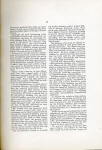 |
| |
eur038 |
locomotives heavier, towards Heidelberg;,
where we will soon stop to inspect
its
famous University and other points of
interest, and probably
proceed later in the day towards
Switzerland, where -we hope
to have a continuance of this balmy weather, to enjoy its mighty
mountains and sweet calm lakes, of
which we will write you in our next.
heidelberg,
Germany, Aug. 7,1889.
dear citizen:—Our
enjoyment
increases,
as it were, by geometric progression.
Each place we visit seems to eclipse
all back of it, and this delightful spot is
no
exception to the rule. Moreover, it is
somewhat of a surprise to us, unprepared
as
we were for its beauties, expecting
only an inspection of its renowned university,
even somewhat of a dry task to tis.
But
we had no sooner reached its borders
than we saw our mistake and fairly trembled to think how nearly we had
passed it by
without a stop.
First of all, we are received politely at
a
most excellent hotel, at which our
Cook's coupons entitle us
to rooms and meals. The Grand is as
comfortable as any we
remember. Coo!, light, cheerful
and in all respects well
appointed—by long odds the
best we have known since
leaving Edinburgh.
Refreshed by a good table d'hote dinner,
unwearied by the nuisance of ordering
food a la carte, we start out for an
afternoon's drive in a brette which
reminded us of friend
Reynolds, a good strong pair of horses, and a driver who
could understand our German, because,
as we found out afterwards, he could
speak English himself, and
consequently had an car for
our pure idiom.
First, we ascended a high eminence on
the
side of which is perched the ruins of
the old Heidelberg castle, which is indeed
a most interesting object.
In respect to size it corresponds
with Windsor castle, but its old walls are far more massive. At
one point, where a huge tower had
been blown clown by the French some
hundreds of years ago, we were
enabled to estimate the
thickness of the wails, and found them to be fully twenty-one
feet of solid rock masonry. The
outside walls enclose an area of over forty acres, while the
castle proper, we think, must
cover some five or six acres. Again we
wonder how this immense mass of material
could have been transported from the lowland quarries up this
precipitous
mountain side, and then raised to the
dizzy height of these grand old battlements.
The moat which extends
around the castle we judge to be 100
feet wide and near fifty feet
in depth, and with its banks thoroughly protected by the heaviest
of masonry. Nor was there wanting a
sample of the fine arts of
those days, for on all sides
we see marvelous examples of statuary of kings and men of renown, of
whom we are ashamed to say we
know but little.
A
gateway still stands flanked by columns
of the finest carving, an evidence of
the
love of King Frederick V for his wife
Elizabeth Stuart, daughter of James I of
England, and still recognized as Princess
Elizabeth's Gate.
From various points around and above
the
old castle can be had a magnificently
extended view of the valley of the Neckar,
on which Heidelberg is
located, and of its junction with the
river Rhine, a good many
miles away, and at the same time a birds-eye view of this old city, with
its curiously tiled houses
nestled so closely together that two vehicles can scarcely
pass in some of the streets. Here we
also see the university
buildings, which are by no
means imposing, and several
club houses of the students, each designated
by its own peculiar flag.
Our pleasant drive was extended, after
our
inspection of the castle had ended,
across the Neckar by an old stone bridge built some 150 years ago, and
standing
as
firm (aye, probably much firmer)
than
if
the contractors were of the present year.
Ascending the mountain on the opposite
side we obtained a splendid sight of distant
mountains and plains, while at our very hands the vineyards were loaded
down with grapes, getting ready for the
vintage. Altogether we do not remember
spending a more thoroughly
enjoyable afternoon.
After a, light tea we go out again and
are attracted by strains of sweetest music
to a beautiful garden, which was
brilliantly lighted and filled with happy,
merry people.
Of
course we sought admittance, which ...
|
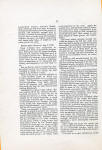 |
| |
eur039 |
cost us thirty pfennings (which means
seven and a half cents of our money) and
for this small consideration we were enabled
to listen to a concert such as anyone in Asheville would gladly give
seventy-five
cents to hear, while the sweet
flowers, the green grass, the bright, hazy
fountains, the bright lights and the happy
boys and girls, made it a thousand fold
more agreeable. We could not but wish
that our good people at Asheville could
enjoy, during these summer nights, exactly
such recreation as this, and drink
just as much of this pure lager or wine as they were able to get outside
of. We
must believe that the effect would be most
happy, taking their minds off from their
business embarrassments
and from the everlasting quarrels
over politics and elections,
and promoting kindly feeling
and good fellowship among them all.
Suppose, dear friends, we try to do
something of this kind. It
•will surely be a step
forward in the cause of true philanthropy
and progress.
Speaking of beer, we could not but be
amused to see a party who
sat near us at the table this
evening, composed of a large family, evidently wealthy, and of
high social position. The junior
members consisted of a half
dozen boys, varying in age
from six to fifteen years, and the
mother without the slightest
hesitation, supplied them each
with a foaming glass of beer
just as naturally as we would
give our little ones milk or water.
They seem to think it the only thing to do.
Beer is absolutely the national and
natural drink for young and
old, rich and poor, man and
woman. High born or low born,
all seem to meet on this common
ground of devotion of the divinity,
lager.
While surprised at the universality of
the custom, we do not
believe it to be otherwise than
beneficial. Whether or not it may be attributable to this habit,
the fact is manifest that the
Germans are the strongest and
we believe the happiest
people in Europe, if not in the world, and
it is certainly a relief to be free
from the-terrible scenes which we described in our letter from London as being
openly, slanderously enacted
upon the streets of that city.
Good-bye.
baden-baden,
August 7, 1889.
dear citizen:—The
fact that this renowned
place has lost its character as a gambling spa matters very little to
your correspondent, as his purse is
not so plethoric as to
require depletion, and all that is needed to make it perfectly beautiful,
still remains.
Providence has smiled on us by giving
a bright sunshiny day,
which is the only thing that could possibly add to the enjoyment
of this lovely spot.
Leaving Heidelberg this morning at an
early hour, we soon
recognized the dark hues of the Black Forest, which brought
to inind our boyhood's recollection
of Baron Munchausen, although
we are not altogether sure that this is the scene of
his wonderful exploits.
Nevertheless, as we took a
most charming drive this afternoon
through the sombre balsams which give the name to the lorest, as
they do to our Black mountain, we
fancied we could see the very spotwherethedeerhad the cherry tree
to grow out of his forehead, and
where the frozen music was
thawed out, and the wild boar killed in a
manner so terribly tragic. It suited
very well, whether our memory
of the location of the old
story is correct or not.
From Heidelberg our train
skirted a range of mountains until
it reached Oos, where an opening seemed suddenly to break through
them, disclosing a sweet, quiet
valle3r, into
-which a connecting road
quickly carried us, and landed us on the banks of one of the most
sparkling-streams we have ever
seen—and there we were at the
famous Baden-Baden.
We
are certainly glad that the government
has put an end to the gambling which
has given it so unsavory a reputation, because surely in no spot could
human wickedness seem more
out of place. It appears designed by the great Creator to
be exactly what it now is—a pleasant
resting spot for men and women wearied with the labors of life and
seeking recuperation of strength to fit them for their future
struggles. This is exactly what
Baden-Baden is suited to be, and what
we conceive that it is. Probably it
is by some considered and
used as a fashionable retreat, but we have been troubled
not at all by this characteristic,
and have only had time to sip its great pleasures.
|
 |
| |
eur040 |
Even a spot of such marvelotis attractions
would fail to please unless the wearied
traveler can be comfortably lodged
and
fed, and this we find once more at
hand, thanks to our Cook's coupons,
which secure us rooms, notwithstanding
the
crowd, at the Hotel de Holla-id, in all
respects a most desirable hostelry, with
polite and courteous landlord and subordinates.
What a relief after our London
experience.
We
advise all persons coming to Europe
to
go first to Cook's office, and with his
help to map out their proposed tour, buy
their tickets and provide themselves with
hotel coupons for every day they expect
to
be absent from the United States. We
heard many opinions expressed on this
subject, and hesitated as
to the wisdom of investing in these
coupons, but our experience
with them has been most satisfactory.
The hotels to which they have admitted us have been uniformly
good, and a most important point is that they
dispense with extras, which so
annoyed us otherwise. Whether
the cost of traveling with
them is greater we cannot tell
certainly, but think it is the
cheapest way, considering the character of the
accommodations provided, and it certainly
saves a vast amount of trouble in
buying tickets at each station and deciding on a hotel in a strange
place.
We
started to say, before this digression,
that, leaving4 Heidelberg at an early
hour, we skirted the Black Forest, passing
through a well cultivated section of
country which was devoted to crops
with which we are familiar, such as
tobacco, corn (maize), beets,
oats, etc., all looking in
good order, especially the
tobacco, which reminds us to advise our
smoking friends to send here for
their cigars, if they can get
them home free of the odious
custom house duties, as today
we bought an excellent one, such as
at Asheville would sell for
three-for-a-quarter, for the
small sum of six pfen nings,
or one and a half cents. At most of the tobacco stands we are
reminded of our State by seeing the
familiar brands of Duke's cigarettes, of which the price
seems very high, so that we must
abjure them and adopt Dutch cigars instead.
It
is not only the crops of this country
winch resemble ours, but
many of the shade and forest trees
arc almost 'denti-
cal. We do not know by
what name they may be called here,
but recognize readily our old friends, the locust, the mountain
birch, the Lombardy poplar, the dark
black balsam, tall firs orspruce,
the catalpa and the hideous
alianthus, all of which,
while reminding us pleasantly
of our dear home, surprise us to
find them in this
comparatively low section.
Immediately after being ensconced
safely in our rooms, we sally forth to see
sights, and until our
table d'hote, at the old fashioned
hour of one p. m., we enjoy a charming walk over the greenest of
grass (no signs to "keep off"), by the
brightest of flowers in endless profusion,
and around the most admirably
designed fountains, which,
from piles of huge stone, shoot aloft a most delicate and
graceful spray of mist, rather than
water, which falls not into
an orthodox circular basin, but keeps moist the surrounding
lillies, and then flows secretly
away by some hidden aqueduct.
Our walk discloses also some most elegant
buildings, admirably adapted to
their various purposes. Among them
one
that is called a "conversation house"
to which we are admitted
for the small fee of one mark, which
entitles us to attend both an
afternoon and evening concert of
the most heavenly music.
The interior of this
"conversation" is most elaboratery fitted up as reading and concert
halls, but chiefly were we attracted
by its ball rooms, of which we cannot resist the effort to give
you a very faint description.
Four in number, they are
named in honor of four French Kings,
Louis XIII, XIV, XV and XVI, and each vies with
each in absolute splendor.
First in order, that of Louis XIII,
measuring 65x65 feet, its walls and ceiling
frescoed in most subdued tints; its
rich dark floor of highly polished oak, inviting
our old stiff shanks to try a polka
or
mazurka; lighted by five large chandeliers, each bearing seventy
candles, which
are
multiplied a thousand fold by the
bright gilt, and flashing crystal of which
their holders are composed, while around
the walls one hundred and fifty gas jets
are modified by shades of ground glass,
lighting up the hazy
fountains, which, four in number, add
to the fairness of the
picture.
|
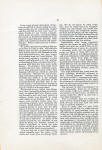 |
| |
eur041 |
The hangings are of heavy damask, yellow
and pink, while the golden framed chairs and sofas are upholstei'ed in
old pink and blue of most delicate
shade.
Opening from this is the
boudoir of Louis XV, small in size
(probably 30x50 feet), hung with the very heaviest of
pompadour silk and gold, while the
magnificent furniture is upholstered to correspond
in some costly material. We were told that each of the many
chairs had cost twenty-five hundred
francs, but this we must think is exaggeration.
On
the opposite side of the boudoir we
enter the room of Louis XIV, measuring
60x80 feet, corresponding in finish with
the others, except that
its curtains and upholstering are of the very richest red, lighting up
brilliantly at night, and yet, strange to say, free froin all approach
to gaudiness in day, the sunlight
only seeming to render it more softly rich and magnificent.
The largest and finest
ball room is that named in honor of Louis XVI, and finished as a winter
garden ; its walls of gold and silver, covered with the most rare
exotics in full growth and bloom,
while in the center a mound of the same is kept fresh and healthy
by a spray which shoots up on high, which is repeated
on each of the four corners.
With this weak effort at describing the
charms of this marvelous
building, we must pass on to a far
different scene, illustrative of the grandeur of the olden
times as this is of the present.
A good brett, at most
accommodating terms, receives us as the afternoon concert is finished,
and gives us a drive over an
excellent but steep road, ascending
an overhanging mountain, whose sides are in part covered by the richest
of grass, and immediately adjoining it by the most dense of
balsam and fir forest. After crossing
which for a distance of three miles, we emerge near the top upon
what must have once been a kingly
palace, now in ruins, but retaining enough of its ancient
form to show how grand it had been in design and execution. Its massive walls of solid
stone surmount the mountain's crest to a perfectly dizzy height,
and enclosing what must once have been princely banquet halls, now
occupied by immense growing forest
trees, which seem striving
to overlook their lofty enclosures.
At
other points, too, we see evidence of
horrible dungeons of those dark and
cruel clays, and a well,
curbed around with hewn stones, ten
feet in interior diameter, and we wonder to what depth it must
have gone, but cannot tell, as it is nearly filled with the debris of
many ages.
A climb up the steep stone
stairs, over which so many happy and sad people must have passed,
takes us to the very topmost
pinnacle of the walls and tower, which here are about eight feet
thick, and thus afford a safe and comfortable walk, from which a view is
obtained of most wonderful brightness and beauty, first over the
mountain sides, of balsam as thick
as any on our Roane or Mitch-ell, and then over the sweet valley in
which nestles Baden-Baden, and
yet beyond, on the level country, threaded as far as the eye can
reach by the silvery waters of the Rhine. This sight alone, we all
agree, pa^-s us for all of the discomforts of an ocean voyage, even in
a State Line steamer.
The weirdness of this "Altschloss,"
"old castle," is much increased as we
climb its crooked stairs,
by the doleful sound of an /Bolian
harp, which by some one, has been placed in the depth of one of
its ancient embrasures, and by its sad
notes, seems to sound the dirge of
the old people, who perhaps
are buried beneath.
Returning by another route, affording
more and varied beauties at every curve, we reach the town
just
in time to hasten back to the
"conversation" and take a seat in its
garden, now brilliant with gas,
in all kinds of fantastic and
patriotic designs, to have our tea served while our
ears are again regaled by such music
as one seldom enjoys in
America, and to watch the
crowds of young and old, children
of six and men and women of sixty, who drink it in with the same
avidity and the same stolid sense of
pleasure with which they
imbibe their foaming lager,
and thus
ends our happy day in Baden-Baden,
August 8.
Not
content with what we had done on yesterday, 6 o'clock finds us winding
our
way to the bath house, where the dust of
ages is quickly removed by a plunge
into this glowing
water in basins of purest
|
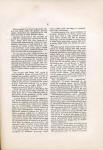 |
| |
eur042 |
marble, of all sizes and shapes, and of various
degrees of temperature. Our only
trouble is the want of an interpreter. All
of
the gentlemen seemed anxious to explain
the ins and outs,
but,
unfortunately, we
found not one to
speak English or
French; so that we were somewhat
mystified, but, plunging from one to another, we tested the degrees of
heat or cold in a manner thoroughly practical, if not scientific,
and emerged with the impression that this bath was the most charming of
our lives.
After a good break "a
;t we go to the Trinkhalle and imbibe a glass of warm mineral
water for our stomach's sake, and
this duty being pc -f armed, a walk up
a steady hillside takes u: to see a
Greek church, the first we have
entered, quite small, but
richly ornate, and containing two
fine specimens of marble work commemorating
the virtues of a young prince
and princess of whom the
church seems
to be a memorial erected by their
parents. The tablet to the
young man impressed us with its quaint pathos, saying in
French that on such day "Our dear son
gave back his sweet
soul
to
God."
This ends our visit to
Baden-Baden, and one of the most charming days of
our life. We are now flying southward
to Lucerne, which we hope to reach this
afternoon, at 5 o'clock.
We regret having to pass
Strasburg and its wonderful clock, but the hour
would not suit for us to be there at noon, which is the time that
the twelve apostles appear and many other wonderful
things are done. Not having time enough to devote a day to
this, we must postpone its examination until our next visit,
when we hope many Asheville friends
may be with us, and enjoy, in
person, the things which so
delight us. Good-bye.
GLASGOW,
July 19, 1889.
dear citizen:—Landing
yesterday at
Greenock, the tide not permitting- our
steamer to farther ascend the lovely
Clyde, a fast train brought us in an hour to this city,
and enabled us to take a hasty
glimpse of a most exquisite country.
'
The features of Scotland,
with which we are most impressed at once, are the
character of the buildings, and the
thorough cultivation of the soil. A very large
majority of the houses are constructed of
stone, presenting less artistic effect in
their architecture than a
sense of durability. The stone, for
the most part, is of a. dull,
dark grey color, but occasionally
varied by red sandstone, similar in hue to
our best brick. No effort, as a
rule, seems to have been made to lay the walls in
courses at all regular, but the
roughness adds greatly to the
sense of strength.
The farming lands, for the
most part, seem devoted to the
cultivation of hay, and every
one exclaims at the large number
of stacks, produced upon such small
patches of land : It does indeed
appear incredible that so much can be had from soil apparently
rough and sterile. The color of the
hay, too, is remarked by us, it being of a light olive green,
blended with slight yellow, and giving proof of having been cut in its
most juicy and succulent condition,
instead of remaining to grow
hard and worthless, as our farmers too often allow it to do. The
horses, too, give evidence of the excellent
quality of food. They are bred in
Ireland. We have never seen
anything to compare with the
big size of those used for heavy
draft, and their huge feet are a
marvel indeed. The
magnificent animal which brought our baggage from the steamer to
the train has an understanding of
which an elephant might be justly proud. With apparent ease he
drags up a steep incline, a
tremendous pile of trunks, and
they being discharged into the funny
little cars, he is led
by his driver at least one .hundred
yards to find sufficient space for him to turn about and return
for another load.
This slow and dignified procedure
strikes us as very funny,
showing that our Scotch friends
place low estimate upon time The detention to us Americans seems most
exasperating. First the
intolerable nuisance of custom officers inspecting
each article, as though her
majesty’s dominion depended upon their guarding her from the
impositions of a few North Carolina
teachers, and, when this is
accomplished, we are with equal deliberation taken upon a tug
boat and carried ashore. So that at least two
hours of our scant time is wasted in
the landing.
The funny little railway
carriages are subject of universal
remark. However ... |
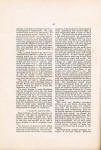 |
| |
eur043 |
often we have read a description of them,
we
never before realized their drollness. While acknowledging their comfort
and speed, we would
not at all change systems with
them. Ours is to us far more convenient and desirable in all respects;
and we cannot but wonder that
some enterprising Yank has so long refrained from establishing
our plan of checking baggage, or
luggage as they call it universally
here.
If our cars are the best,
their station facilities more than make amends. The
passenger accommodation in the
depots, so far as we have seen, is simply superb. Nothing flimsy
or showy, but absolute solid comfort
constructed like everything
else, of iron and stone, as though intended for the use of generations
centuries hence.
Each station is supplied
with a most excellent hotel Thus we
are now at the St. Enoch's station hotel, and it is one
\ve have rarely seen equaled for
solid comfort. We are almost
lost in its large and airy rooms after our ten days' confinement
in a crowded stateroom.
A good supper and night's
refreshing rest enables us to take a morning stroll around the city,
while most of our party have gone to visit Ayr, the poet Burns'
home. We hope they may have an enjoyable
time, but would not at this moment have missed what we have seen under
any consideration. The rows and
streets of immense grey stone
houses, "whether residence, shop, or hotel, give to the 'whole city an
air of calm dignity, such as
we have nowhere experienced.
The
few public buildings that our limited
time allows us to see are of corresponding
gravity. The city hall is really most impressive, of a Corinthian style of
architecture, and of the eternal grey
stone, with walls and battlements adorned plentifully with
statuary that, to our eyes, seem most
excellent in design and
accomplishment. It faces upon
St. George's square, which, while lacking
the shady verdure of our LaFayette
square, is adorned with most admirable
statues in bronze of distinguished
people.
First, of course, as in duty bound, we
doff our hat before an
equestrian statue of her majesty, in
which she is represented as sitting upon a ,superb horse
with a degree of ease which she
could only
have obtained in the prime of her womanhood.
Opposite, the prince consort bestrides a steed, but in no manner does
his his appearance
keep pace with that of his worthy
frati.
Of
the many other statues, which stand
guard as it were over
their royal highnesses, we are most
pleased with Sir Walter Scott, who stands erect on a lofty shaft
in the center of the square, and with the strong hard features of
Field Marshal Lord Clyde, Colin Campbell,
the great general who succeeded in
taking relief to the garrison of
Lucknow,
A connoisseur will
probably be most pleased with the figures of James Watt, and Sir John
Moore, both by eminently
distinguished artists, the former by Chantrey and the latter by Flaxman,
but making no such profession ourselves, we are
delighted alike by one and all, and
gaze in rapture upon Sir
Robert Peel, Robert Burns, Dr.
Livingstone, Campbell, the poet, who with many others renowned in
the world's works, seem to look into
our very soul with their lifelike eyes.
But unless we curtail our notes of delight
we will not find enough paper for our
need, and the grandest of all remains
to be mentioned — the cathedral — and
however strange it seems to us to call a Presbyterian church by
this name, the building itself
deserves the title. The exterior,
while impressive, fails to give one any idea of the delight that
awaits him upon entering. The lofty
stone pillars, supporting:
arches of the same material,
and of endless variety of size and dimensions, while the glazing
of the windows in colors most
exquisite lend a soft, balmy
brilliance to what would otherwise
be the cold gray of the stone.
This being the established
church of Scotland, is, of course,
Presbyterian, and is under
charge of Rev. Dr. Burns, who is
said to be an eloquent and earnest
divine. We hope on Sunday we
may have an opportunity to judge of his eloquence.
Space again forbids us to
attempt a description of this
magnificent building, even
should our pen be so bold as to essay it. We must content
ourselves with a few notes of the
part most interesting to us,
the crypt, in which innumerable pillars
of the everlasting stone supports the
floor of the nave and My Lady's
Chapel. In the center is a catafalque, used as a ... |
 |
| |
eur044 |
place for lying in state
of distinguished dead, and under which is the tomb of Saint Mingo, the
patron saint of Glasgow, who died
Anno Domini 601, and whose
well in a corner ot the same crypt
used to bestow healing tipon the
credulous multitudes. Near by we are shown Rob Roy's Pillar, where
the gallant Mc-Gregor
concealed himself during the service.
But perhaps the length of the
sermon
may have overcome his discretion, and being discovered ho beat a
retreat towards his native heath, which his foot
so delighted to press,
and this door by which we stand
gave him exit.
How vividly this beautiful story, read
in our boyhood, is brought back to mind
as we lean against the
very pillar and conceal ourselves
in its shade as did brave
Rob Roy.
This visit to this magnificent pile is not
devoid of features of
amusement. It is indeed strange
that even the solemn
monuments of the dead often carry with
them points irresistibly ludicrous.
On an ancient bronze appears a legend which
reads in English as follows:
"Here are buried Sir Walter, Sir
Thomas, Sir John, Sir
Robert, Sir John and Sir Matthew, by lineal descent to
others Barons and Knights of the
House of Mynto, with their wifys, bairnes and
brethren."
Which shows that the
great house of Minto were frugal
Scotch and practiced
economy even in the matter of tombstones,
one being considered enough for
the whole generation, their ''
wifys, bairnes and brethren."
The following epitaph to Dr. Low we
commend to his professional brethren,
that when their "phisick's force oft failed"
their pleasant purpose
may prevail, and enable them through divine grace "to
live in mirth and die in peace."
1642.
DR PETER
LOW
THE FOUNDER OF THE FACULTY OF PHYSICIANS
AND SURGEONS.
STAY-PASSANGER-AND-VIOW-THIS-STONE
FOR-UNDER-IT-LYES-SUCH-A-ONE
WHO-CUIRED-MANY-WHILL-HE-LIYED
SOE-GRAC1OUS-HE-NOE-MAN-GRIEVD
YEA-WHEN-HIS-PHISICKS-FORCE-OFT-FAILED
HIS-PLEASANT-PURPOSE-THEN-PREV AILED
FOR-OF-HIS-GOD-HE-GOT-THE-GRACE
TO-LIVE-IN-MIRTH-AND-DIE-IN-PEACE
HEAVEN-H AS-HIS-SOUL-HIS-CORPS-THIS-STONE
S1GH-PASSANGER-AND-SOE-BE-GONE.
AH-ME-I-GRAVEL-AM-AND-DUST
AND-TO-THE-GRAVE-DESIIEND-I-MUST
O-PAINTED-PIECE-OF-LIVING-CLAY
MAN-BE-NOT-PROUD-OF-THY-SHORT-DAY.
At the cathedral door
one's eyes are feasted by a view of
the beautiful Necropolis, the home of the dead of later days
than those whose dust lies nearer the sacred walls, which position
they have held, some of them,
since early in the fifth
century.
At a distance we see there a handsome
monument to John Knox,
the restorer of the Bible to
Scotland, who with all of his hard, austere nature was a good man and
a great reformer, well
deserving this shaft of stone, which is not needed to keep his
memory green.
As we leave the
cathedral place our eye rests upon
a figure of one -whose name we have bestowed upon our little
son, an honor of which we hope he may
prove deserving—Norman McLeod, the
great writer in good words
and the earnest preacher of
Glasgow, famous as much for
his purity of heart as for the boldness
with which he presented views so
liberal as to be considered
heterodox. We could not resist the thought that the
monument of the stern upholder of
doctrine, the most
absolutely orthodox, looked
down with pity, perhaps contempt upon his liberal fellow
laborer of the nineteenth century, but to us each seems to have been
called to and faithfully filled
his appropriate place in his generation, and the ideas of
Farrar and McLeod are those which
will prevail, and exercise
influence over the men of this day.
*
This letter is inserted in the order in which it appeared in the
asheville citizen, and
not in continuity
of date, owing to delay in transmission and reception.
|
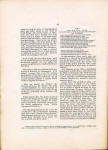 |